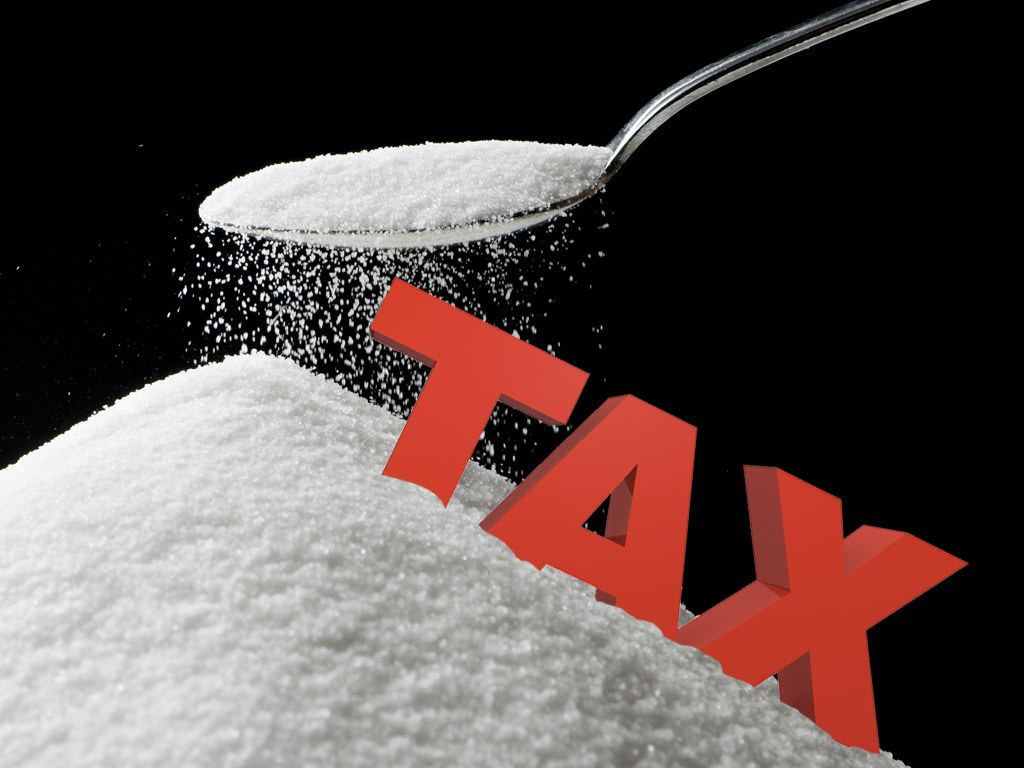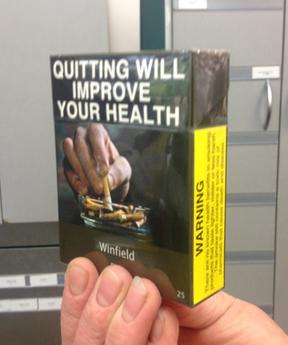

This week in TRUTH: In 1000 Words or Less, I am going to be completely up front with you right from the onset: Some of you are going to be raging pissed at me this week. Even some of my regular TRUTHERS out there, the real die-hards, even some of you are going to cringe at my central premise this week, but I’m going to ask you to hang in there with me and hear me out. My viewpoint will be controversial, but I have a sneaking suspicion that I might just convert a few of you.
For anyone who knows me, you know how much I love ice cream. That’s not the controversial opinion I’m referring to here, but it’s central to the point nonetheless. In fact, when I was having coffee a few weeks ago with a friend who I hadn’t seen in years, they were absolutely floored when I informed them that I had tried to eliminate processed sugars from my diet about a year ago and hadn’t eaten ice cream since.
“No way!” she exclaimed, “What about the jellybean jar?”
“Gone,” I suggested.
“Wow- I would have thought they would have had to be giving you daily insulin shots to get you to give that up. Good for you, Steven.”
Good for me indeed. Because we all know the deleterious effects of disproportional amounts of sugar consumption. Although I exercised regularly and maintained my conditioning, I was turning my body into a toxic waste dump, a petri dish of contaminants fed by Starbursts and Jolly Ranchers. Now 46, I feel better and have more natural energy than I have had in years.
But good for society too. Because I now cost all the rest of you out there a lot less money. Due to my personal dietary choices, I will probably die later (a fact that I must acknowledge may not be so universally celebrated by all of you), and will incur fewer health costs along the way. There are plenty of studies out there detailing the fairly precise fiscal costs incurred by the society-at-large in managing and treating the harmful impacts caused by our nation’s addiction to sugar. Don’t get me wrong, I did this for me, not to save all you assholes out there a bunch of money, but you get some of the financial benefit when I make better choices because I cost you less.

Which is exactly why we have to ask people who make poor health decisions (and gosh knows, we all make some!) to pay more to cover the costs for their own personal decisions in the form of a tax on products that are proven to cause health issues and thus correspondent fiscal costs to the rest of us. Call it a “Twinkie Tax” if you will. Now let me say clearly, I’m not calling for the prohibition of any product that only impacts the health of the individual, but rather suggesting that the burden of paying for the choice to puff down on that unfiltered cigarette or choke yourself on Fritos and Ding Dongs should belong to the person making that choice rather than those of us who have no say in what they put in their ever-ravenous pie hole. I’m not judging anyone’s individual choice; I just don’t want to pay for it if I’m not the one eating it.
So, the next thing you are going to ask me is, “So what, are we going to tax everything that’s not good for you?” Yes. Everything that can de definitively established to have a calculable financial cost to the remainder of society should be taxed according to that cost such that society is justly reimbursed for the funds needed to treat your subsequent health issues related to those personal choices. Go ahead and do whatever you want, but pay the rest of us back, ok? You can go on a cruise and drink bourbon, smoke cigars and eat chocolate cake from port to port as far as I care, but please don’t ask the rest of us to foot the bill when you get diabetes in ten years.
When an individual’s personal choices create a burden for society to bear, it is called an “externality”. We know what some of these poor choices are and the long-term costs associated with doing so. Spoiler alert: smoking isn’t good for you. Do it if you want, but how about you chip in a couple bucks for each pack so that we can pay for that trachea implant you are going to need somewhere down the line. And if you are going to let your kids chug down on liters of Mountain Dew, we might just ask you to contribute to the slush fund we want to take up now to get ready to pay for all that dental work.
The ancillary benefit from this, of course, is to incentivize people towards making healthy choices rather than deleterious ones. Evidence suggests that recent taxes on smoking have had a pronounced success in reducing the number of smokers. Taxes on products known to be harmful to our health, while not prohibiting anyone from making the choice to imbibe them should they elect to do so, would give folks a further impetus for maintaining a healthy lifestyle. And in the end, we could all benefit from a little more of that.
Steven Craig is the author of the best-selling novel WAITING FOR TODAY, as well as numerous published poems, short stories, and dramatic works. Read his blog TRUTH: in 1000 Words or Less every THURSDAY at www.waitingfortoday.com




Hi Steven!
A tax on unhealthy foods/consumption of same to offset the cost to society of excessive consumption of unhealthy foods in the form of healthcare costs/lost productivity due to work absences due to food related illness and disability seems worth investigating.
BUT: do you trust your congresscritters with the proceeds from such a tax? I do not. Do they spend the income from tobacco and alcohol on programs to improve the health of the nation and to offset the costs to society of those who indulge in those habits? I would hazard that a tiny proportion of the tax revenue raised from tobacco and alcohol actually goes back into health care or preventative programs.
Do you think the monies raised by these taxes would be spent on healthcare? In the current US system I do not. At best it would be turned into subsidies and tax relief for insurance companies, which is not the same thing as helping to offset healthcare realted costs arising from the consumption of foods with poor nutritional value. At worst the funds raised would be siphoned off and spent on pork barrel projects of our favourite congresscritters, and defence of course, can’t spend too much on defence.
In short – fat taxes, sugar taxes, in addition to the existing excises on tobacco and alcohol will not be put to beneficial use to improve the health of the nation until such time as there is a single payer health care system in the US, and people could be assured that the tax is going into that budget. Yes, that is a big step! Then it could be argued that the money is going into preventative health services, education programs, outreach to communities, as well as treatment for diseases resulting from poor nutritional intake. Without single payer, how can we be sure such taxes would be spent wisely? Or even on healthcare?
Of course, like lottery funds that go to ‘help’ education, all that could happen is other money raised via general taxation that might have gone into healthcare will go elsewhere, leaving these lifestyle taxes to carry the burden alone. It has been shown (I believe) that lottery funds into education in various states do not increase total spending on education in those states, they merely replace old streams of funding, which states then spend elsewhere. No net benefit to education. I would be concerned that fat/sugar taxes would go the same way.
And is this not a tax on the poorest in society? In my experience, the people with the worst diets, most reliant on empty calories and loaded with sugars, salts, and fat, are the poorest people in society. A lifetime ago I did research on a deprived area in Glasgow and its apocalyptically bad mortality and morbidity statistics (among the worst in western Europe at the time) were undoubtedly linked to poverty, and excessive consumption of tobacco, booze, and fried/tinned/packaged food. Fresh produce was either too expensive, or unavailable. They did not eat it. In the US today there is talk of ‘food deserts’ where fresh produce is hard to come by. Would this tax be remotely egalitarian as a result? I do not think so.
It is an unfortunate fact that the cheapest food is often the worst for us, (the aforementioned twinkie) but it can keep a hungry child’s belly full. If you don’t have the money for anything else a $2.49 happy meal can do the job, and is available everywhere. If the taxes on unhealthy food were implemented, I feel the burden would fall disproportionately on those who would be unable to adjust their choices easily, as healthier choices would still be more expensive, if even available to those in food desert areas.
And where do we draw the line of what is healthy and what is not? Which research to believe? Major food industries have paid teams of researchers to pump out articles and studies to defend their product, even as research NOT funded by the food industry shows increasing concern and deleterious outcomes from those same products. In order to choose what to tax we need to choose which research to believe, and what studies are the most objective. That in itself is a minefield. Decades of misleading food headlines have left consumers with the familiar refrain: “So now X is bad for me? It was great 10 years ago! Might as well eat what I want and ignore all that so-called research!” Consumers have been led into a state of confusion by conflicting research, some of it deliberately so, for at least the last 40 years.
Would regulatory bodies and politicians fare any better in their choice of what to believe? Whose research would be lobbied for harder? I think the research backed by food industry money, unfortunately. It would be the war over tobacco all over again, except this time the US consumer has been conditioned already to distrust food science. I’m not saying that isn’t a battle worth fighting, as it is, but in order to advance a tax? No. I think greater knowledge of food influences on health should be available to all, to enable better choices to be made. Once enough people realise that bacon is a class 1 carcinogen, just like a cigarette, then maybe we’ll see a switch in behaviours led not by regressive taxation, but by education and awareness. A pipedream of mine. (Should we have pipedreams nowadays? Dammit!)
Last but not least, any progress along these lines will be met with choruses of “This is the Nanny State in action!” What about freedom of choice? What about the free market? Would libertarians support a tax on choice? That would be ironic! The Big Gulp ban was deemed unconstitutional. The research on tobacco and alcohol as having ill effects on human physiology are well established now, and so the taxes on those have a basis which is not generally questioned by the public. Can the same be said about sugars, fat and salt? Conflicting research will be bandied about, simple facts such as the basic need for salt, fat soluble vitamins . carbohydrates for energy are all essential to life will be waved around in order to fight any tax plan. No doubt fears will be stoked about agricultural disasters and the destruction of the industry, with its effect upon the economy. A new tax, imposed without time for people, industries, and economies to adjust and prepare will not remain poular for long.
I can’t be in favour of such a tax. The revenues would not go where they should, the US healthcare system is not set up to take full advantage of revenues from such a tax even if they were directed in the proper direction and not hijacked by congresscritters of all persuasions, it is regressive and punishes those with fewest choices, and its researched basis would be difficult to establish, with wealthy vested interests doing their best to undermine it at every turn.
Educate, increase awareness, change behaviours based on objective evidence, and we will go in the right direction. Smoking rates today versus 1950? That is what would be desired in society in 2060, fast and processed food consumption rates down by equivalent amounts, with concommitant increases in the consumption of whole and healthy foods. That alone will change the health of the nation for the better and reduce healthcare costs with no other intervention at all. If people know it harms them, if they realise for instance that diabetes is a preventable epidemic that they can protect their children from, then slowly, attituides will change, and life choices and the business that serve those choice will change with them, without disruption. Look at King Soopers – 10 years ago zero to minimal organic produce, now, aisles and sections of the stuff, so much so that Whole Foods is having to rethink its business plan! That is reflective of a wider shift in consumer demand, and a move toward healthier choices without a tax involved. And as Kroger ( and all their suppliers in this for instance) get involved, healthier choices get cheaper too. Everyone has the chance to win. Thank you.